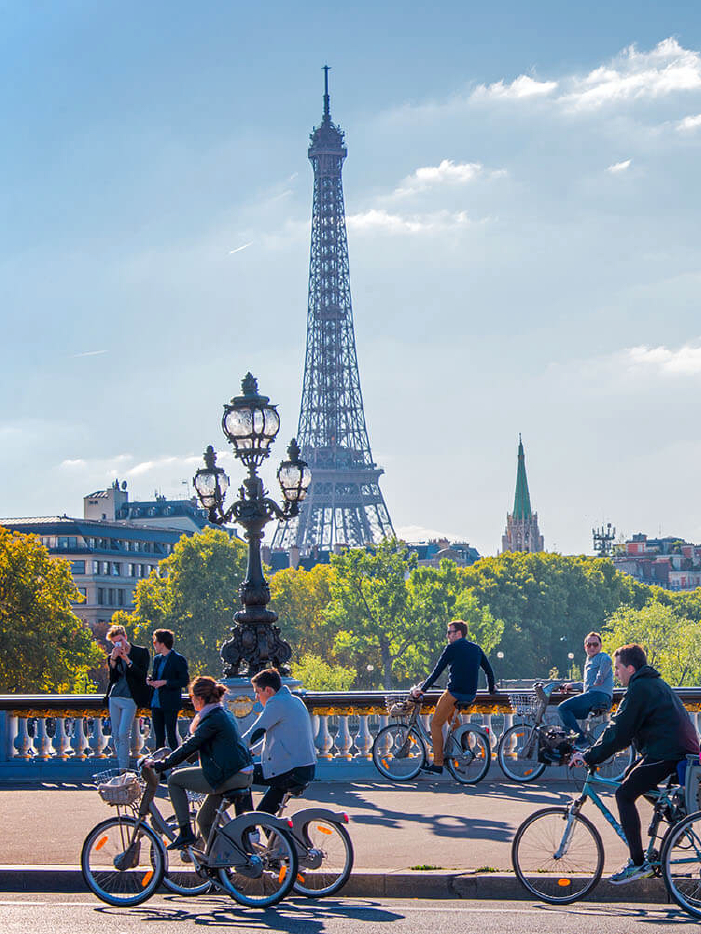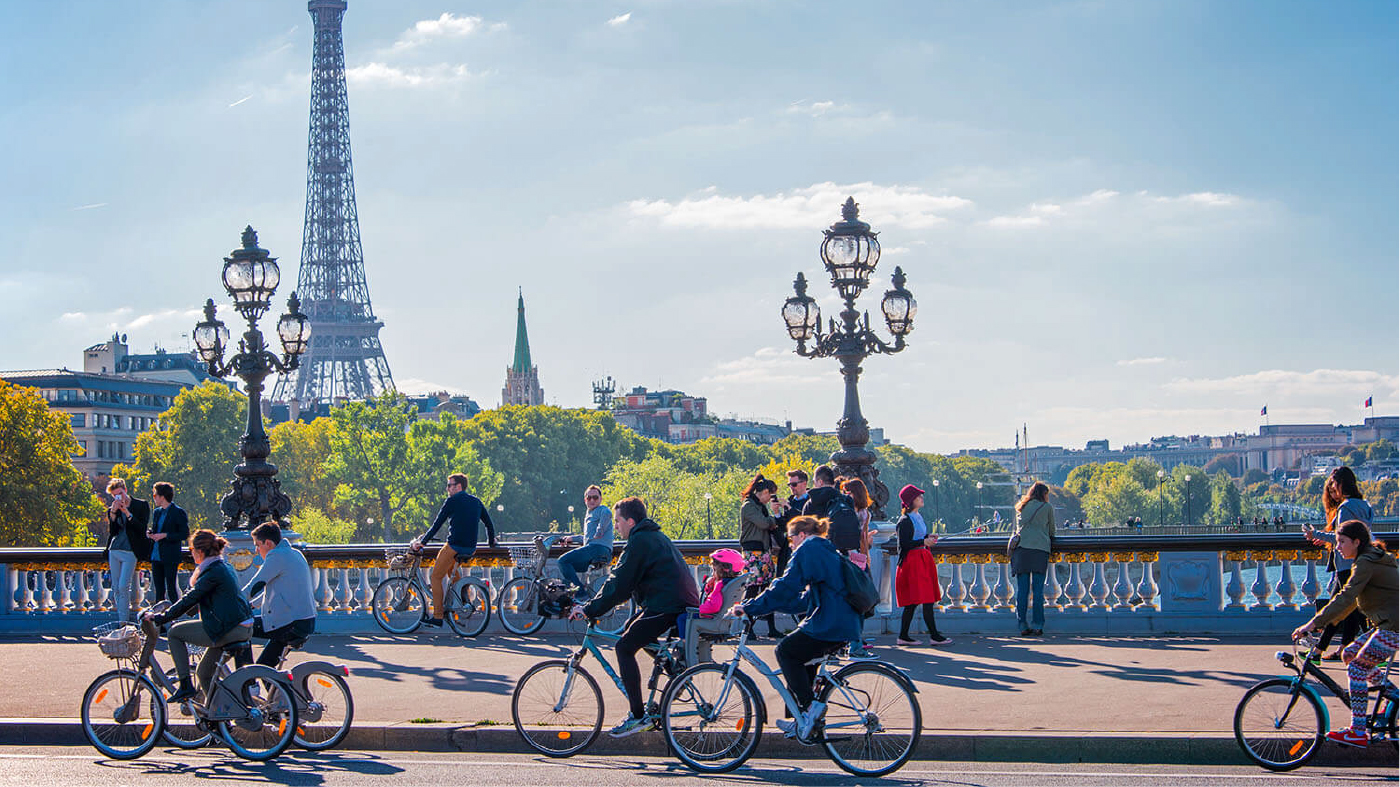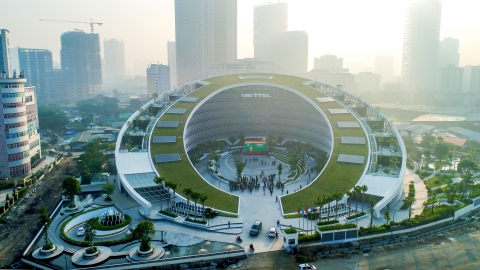Paris will add 180 km of dedicated bicycle lanes and build 450 km of new combined cycling routes, tripling the current 60,000 bike stops. The city is also paying particular attention to infrastructure around the intersections of suburbs and the city center, aiming to create better connections between the metro and bicycle networks.
Speaking to AFP, Deputy Mayor of Paris David Belliard said: "Our goal is to make the city 100% bicycle-friendly." To achieve this goal, Paris has spent 250 million euros (291 million USD) on improvements and new changes.
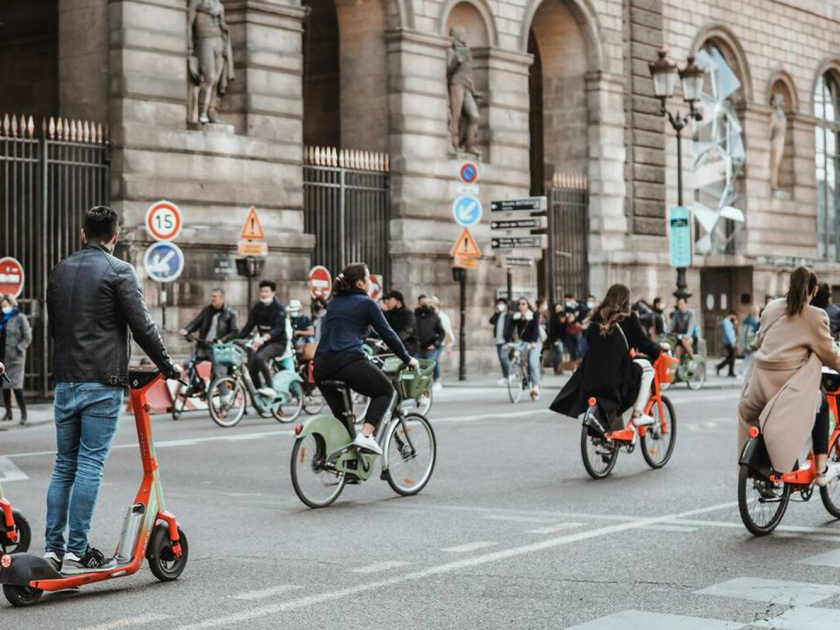
Paris wants to create enough lanes so that cyclists can use their own dedicated lanes for journeys longer than 1 km. - Photo: Internet
Given the numerous problems arising from the use of transportation within the city, this plan is a solution that has been welcomed by many city residents. Recently, during the period of living with Covid-19, cycling has become relatively popular in Paris, with the city recording more than one million bike trips per day.
However, the rapid increase in bicycles on the streets has also created some challenging traffic situations, which is the main reason the city is committed to increasing police control over cyclists and publicly announcing new traffic rules to ensure the safety of all road users.
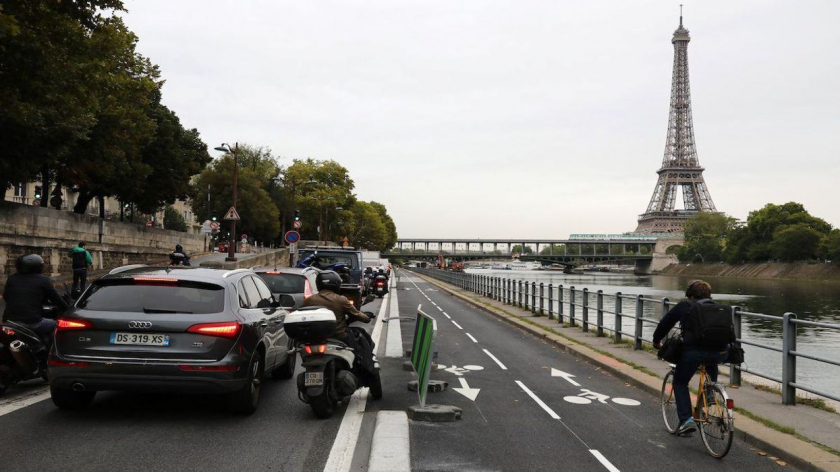
Currently, sections of urban roads along the Seine River have been converted for cyclists and pedestrians. - Photo: Internet
Anne Hidalgo, the Mayor of Paris, stated that the city government has always prioritized environmental protection plans and aims to transform the French capital into "Europe's greenest city" by 2030. However, the plan to turn Paris into a "bicycle city" has only been announced to the public and has not yet been presented to and voted on by the Paris Council.
The project to promote bicycle use in the city is one of many initiatives in a plan to transform Paris into an environmentally friendly destination ahead of the 2024 Summer Olympics. Alongside this, Paris has also limited the number of cars in the city center and aims to eliminate diesel cars by 2024 to minimize their negative impact on the environment.

 VI
VI EN
EN



